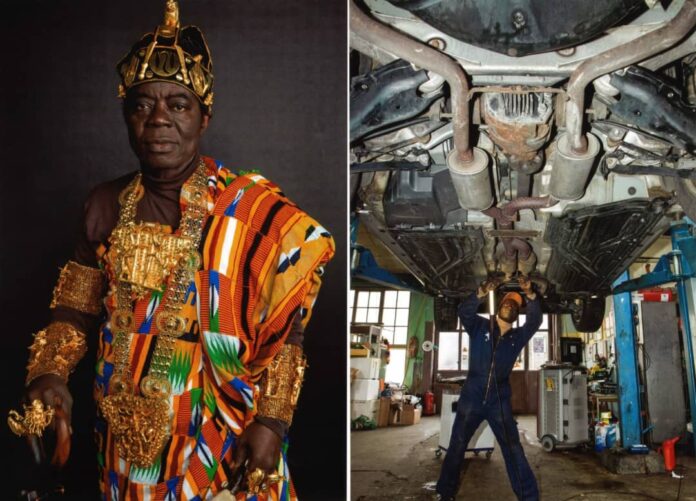The Development Chief of Gbi Traditional Area (Ngoryifia), Togbe Cephas Kosi Bansah, has called on the youth to cherish and protect the rich cultural values of the country, since they had stood the test of time, and should be held in high esteem.
Togbe Bansah explained that the various foods found across the 16 regions of the country should remain important to the people, because local traditional foods were still the sources of good health, therefore, any attempt to undermine their values would lead to ill health among the people.
The Chief, who made the call in an exclusive interview at Hohoe in the Volta Region, said Ghanaians were facing health challenges in recent times, particularly diabetics and hypertension, which were not common in the past, because of the type of foods and lifestyle changes adopted as a result of modernisation.
Togbe Bansah continued that one of the cherished values of the Ghanaian culture was respect for the elderly in society, which the youth needed to appreciate, because it was gradually diminishing, and stressed that all over the world a Ghanaian and an African would be identified by the way they dressed and respected others.
According to him, it was time for Ghanaians in particular, and Africans in general, to rediscover themselves by upholding the cultural values that made them different from peoples of other countries.
Togbe Bansah, therefore, asked Ghanaians, with emphasis on the youth, to refrain from the adoption of foreign culture in the name of modernisation, saying it was important for them to accept the fact that not everything that came from the West was better in terms of socio-cultural practices among others, because as human they also had their limitations.
He observed that professional practices, including skills training, such as dressmaking, carpentry, sculpture and farming were no longer regarded as work, and the youth refused to learn trades that would make them economically independent, and rather turned their minds to non-existent white collar jobs.
According to him, formal education was good, but in terms of building a healthy nation, there was the need to promote vocational training, where the youth would develop skills as architects, masons, farmers and other related professions, and added that nations like Germany, where he lives and worked as an engineer, largely developed through vocational jobs.
Togbe Bansah said the establishment of factories, where raw materials would be provided by the people themselves, was very important to ensure rapid development of the country, and appealed to the youth to develop interests in skills training to enable them establish their own businesses to create wealth for themselves.
He said farming was an area the country could capitalise on to establish industries to add value to farm produce for export such as mango juice, tomato paste, and pineapple juice factories among others, which would boost the growth of the economy, rather than exporting the raw materials.
A 48-year-old Senior High School (SHS) graduate, Mr. Kafui Ahiave, said he did sculpture as a skill acquired at the SHS level, and thanked Togbe Bansah for his continued encouragement for him to use the skills acquired, and stressed that he had never regretted taking it as a business.
According to him, he decided not to continue his education to the university level, because he had 6 other brothers and sisters, who were still in school and felt the burden their parents would have in taking care of him at that level, while providing the needs of his siblings at the various stages of education, and urged the youth not to disregard vocational education, as it would enable them acquire employable skills.









